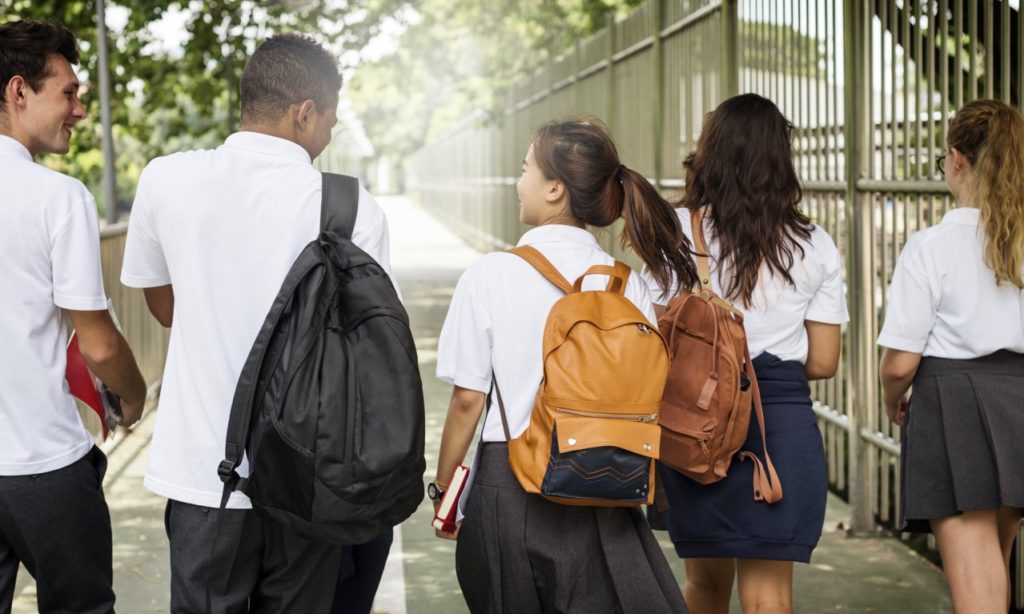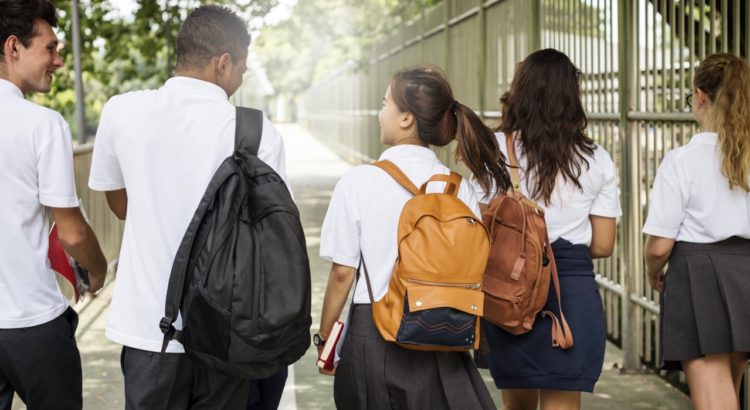
A call for calm discussion and less social media hysteria
This article is not about Covid-19 or the various jabs that are purported to prevent that disease.
In a classic example of social media getting itself wrongly into a lather, a letter from a clinical director at Vaccination UK (who operate non-Covid injections on school sites on behalf of the NHS), addressed to ‘Dear Headteacher’ did the rounds, along with inappropriate invective. Some of this is understandable, given the last two years. Many have lost all trust in ‘the system’ and there is a tendency towards knee-jerk reactions as a consequence.
The letter was dated 28 February 2022 – you can read it in full here.
The gist of the letter was that – due to a lack of consent forms received by Vaccination UK – all students would be summoned from lessons, “not just the ones that have completed a consent form”. While the letter outlines the various processes that are in place to ensure parental consent, one has to say that the letter is perfunctory at best, and – at worst – somewhat tone deaf. It was not, after all, intended for a social media audience.
Various members of HART actually assumed the letter was fake, so it was a surprise to us that Vaccination UK issued a rebuttal on their website, confirming that it was, in fact, real. This statement was much more carefully written and clearly outlines – in more specific detail – the more limited scope of their original letter. We are pleased to note that Vaccination UK actively attempts to communicate with parents and respect the wishes of those parents who choose to either accept – or decline – the medical intervention that they offer their children.
Vaccination UK make the very valid point that:
It is, as always, equally interesting and disappointing to see the level of hatred that some people are capable of when they make assumptions based on very limited information.
We could not agree more. In fact HART can empathise, having previously been on the receiving end of some hysterical ‘playing of the ball’ from people who should know better.
However, this little incident highlights some pertinent questions that do require further discussion:
Why did this storm in a teacup cause such a furore?
- The last 12 months have seen substantial coercive pressure applied to get children and young adults to have a certain injections. HART has consistently challenged this policy – see here, here and here. Many parents have been quite rightfully concerned, especially when even the mainstream media have acknowledged that the health authorities have needed to correct their own misleading consent forms. Early versions of these forms made it difficult for parents to decline the medical intervention: HART is pleased to see more clarity in the latest versions of these consent forms – including a straightforward way for parents to decline consent.
- However, the use of schools as a location for Covid-19 jabs has possibly greatly undermined trust. As we have previously reported, the Chief Medical Officers overrode the JCVI’s advice on the matter and pushed ahead with these injections on spurious grounds – subsequently shown to be incorrect – of reducing school absences. Vaccination UK’s “requirement” that “all students are brought to the session on the day” raises a similar issue – are children in school to be taught, or to have drugs administered? We think the former.
Who are (or what is) Vaccination UK anyway?
- Vaccination UK is actually a privately owned limited company, registered number 3682679. It was incorporated on 14 December 1998. As per its website “Vaccination UK has been commissioned by NHS England since 2015 to provide school aged immunisations, including Influenza, to pupils across numerous counties and boroughs … [and] are also commissioned by NHS England in northeast London to provide outbreak response in the event of a vaccine preventable disease outbreak”.
- Noting the exhortation above to avoid hatred based on limited information, HART encourages people to have an open mind about private contractors providing services to the NHS. There is a very cogent case for allowing private providers to provide elective medical services, especially if it frees up resources for other medical services.
Who controls Vaccination UK and what motivates them?
- Vaccination UK is owned by Q Anne Topco Limited, an investment vehicle named after the street where you can find the HQ of its private equity backer, Inflexion Private Equity. You may not have heard of them, but you may have heard of some of their previous and current portfolio companies such as Jack Wills, Ilchester Cheese and Mountain Warehouse.
- Private equity typically back profitable companies and are adept at growing these companies – usually this is just by shaking up moribund working practices, but – on occasions – there have been scandals where corners have been cut. On the basis that bad practice should be rooted out of private or state-backed organisations alike, HART accepts that private equity plays an important part in the ecosystem of a healthy economy.
- Though Inflexion is only a minority shareholder in Q Anne Topco, it ultimately has full control of the company via the funding mechanism used – as can be seen in filings at Companies House. The company’s accounts to 31 December 2020 report on a difficult year due to a lack of revenue from travel clinics provided by Vaccination UK’s sister companies, also subsidiaries of Q Anne Topco. No doubt, Inflexion will have been pushing for better financial performance through 2021 and beyond.
What are we trying to achieve?
- While vaccination may result in better health outcomes this should not be at the expense of informed consent (which takes time). Nor should bodily autonomy be threatened by a culture of a medicalised education system where interventions are timetabled and authority figures and peer pressure are used to increase compliance.
- It is important to be aware of the McNamara fallacy – decisions shouldn’t be taken based only on what can be measured. The name of this fallacy originates from the Vietnam war, where the USA lost sight of its strategic objectives while seeking to maximise the damage it inflicted on its enemy: morbidly so, with a tragic focus on killing as many Vietnamese as possible. In this context, we shouldn’t measure ‘success’ as purely ‘number of jabs in arms’ without thinking about the wider context and effects that are not measurable.
The million dollar questions
- In the light of the above, is a private company that is heavily financially incentivised to get ‘jabs in arms’ the right entity to be running child vaccination programmes?
- Should such vaccination programmes be run on school premises, with all the complications that this entails (including educational disruption)?
These questions are worthy of more detailed analysis and calm debate.

